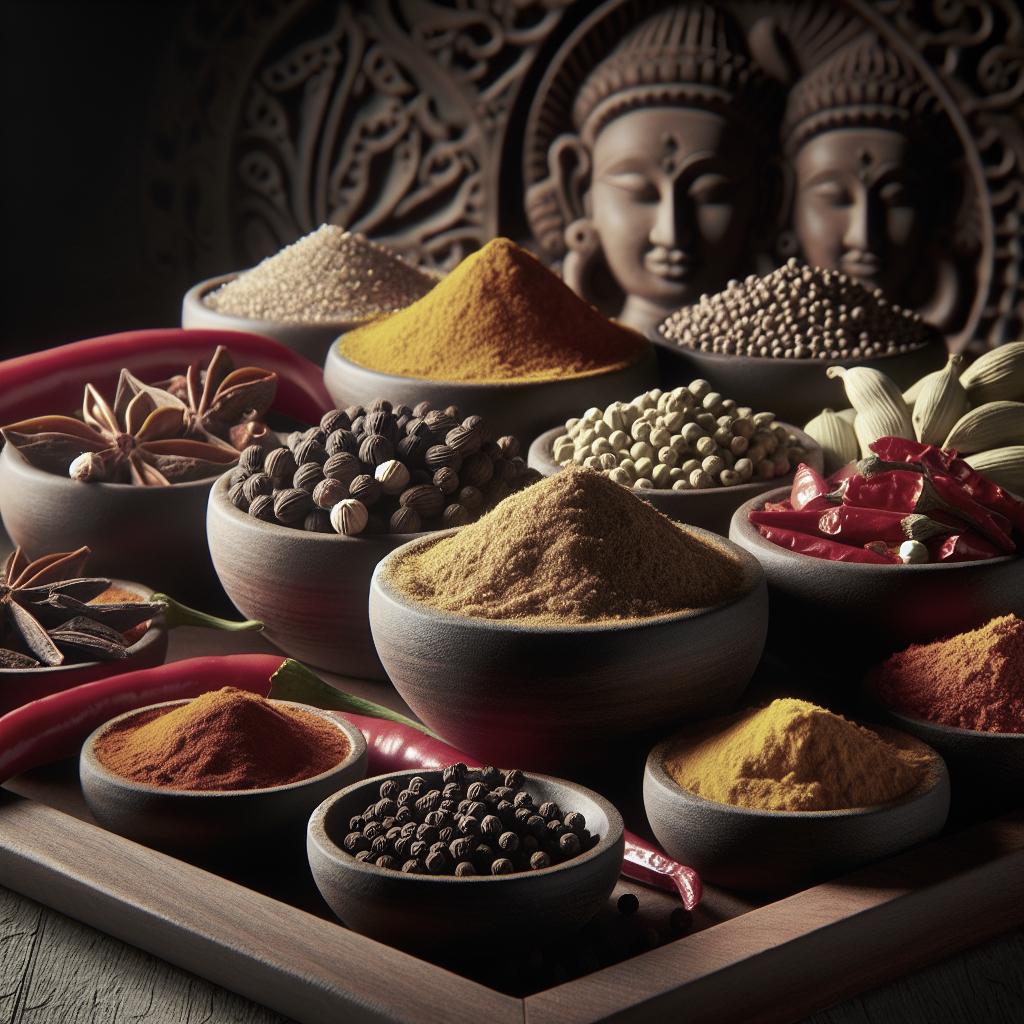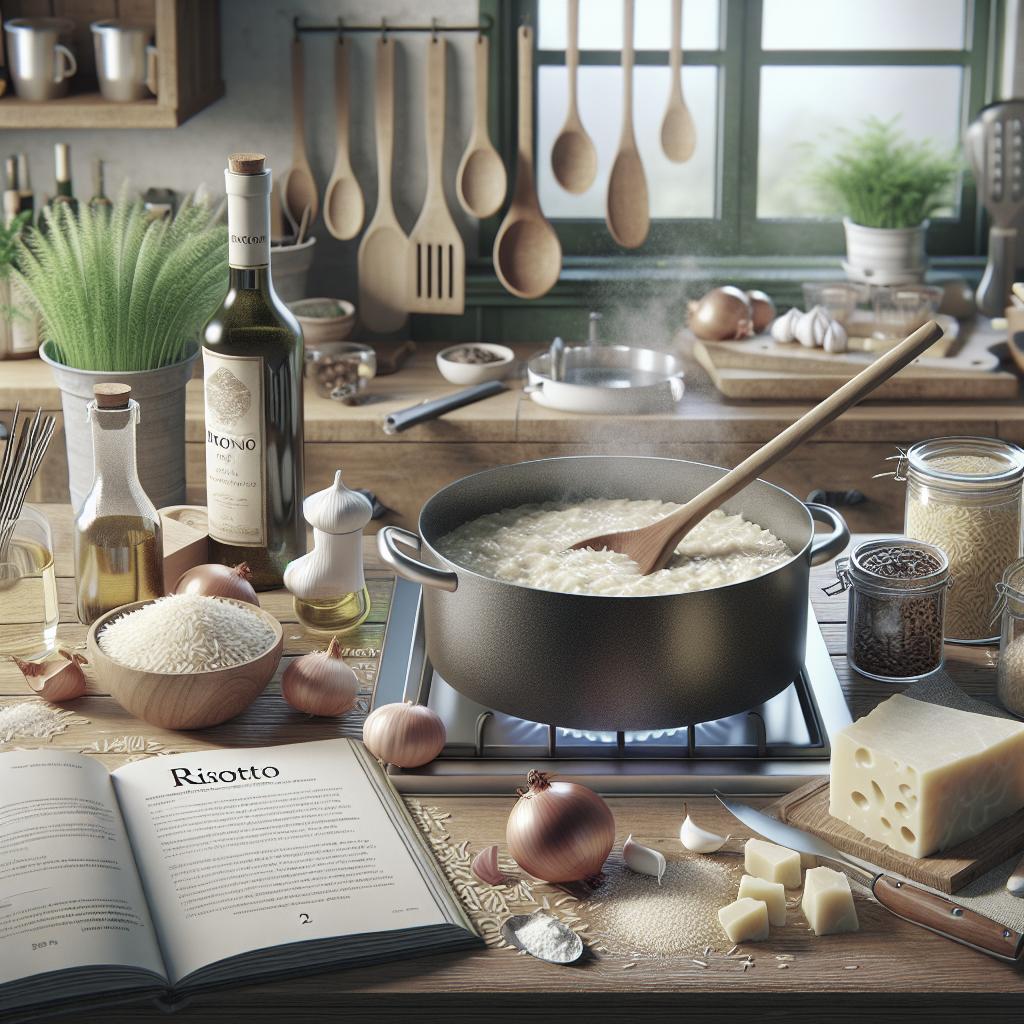“`html
Essential Spices for Indian Cuisine
Indian cuisine is renowned for its vibrant flavors, exotic aromas, and diverse dishes. At the heart of this sensory experience lie the spices, each bringing a unique identity to every recipe. Whether you’re a novice cook venturing into Indian dishes for the first time or a seasoned kitchen pro, knowing the essentials of spices can make all the difference. In this blog post, we’ll explore the fundamental spices that form the backbone of Indian cooking, understand their uses, and provide tips on sourcing and storing them to maintain freshness. With this guide, you’ll be well-equipped to bring the essence of India into your kitchen.
What is a Masala Dabba?
The Masala Dabba, often referred to as the Indian spice box, is a staple in Indian kitchens. It is a round, stainless steel box containing several smaller containers, each holding a different spice. This ingenious organizational tool allows cooks easy access to their most-used spices while preparing meals.
Traditionally, the spices in a Masala Dabba are selected based on regional preferences and the household’s favorite dishes. However, it typically contains the building blocks of Indian flavor: cumin, coriander, turmeric, mustard seeds, and chili powder. These spices form the foundation of countless Indian dishes and offer home chefs the required mix for making curries, dals, and more.
What spices go in my Indian spice box?
The contents of a Masala Dabba may vary slightly from one household to another, but here are the core spices that usually make the cut:
- Cumin: Known for its earthy aroma, cumin seeds are often tempered in hot oil to release their flavor.
- Coriander: Both the seeds and ground form are used; they add a citrusy aroma and slightly sweet taste.
- Turmeric: This vibrant yellow spice is known for its health benefits and imparts an earthy, bitter flavor.
- Mustard Seeds: Particularly common in South Indian cooking, they add a pungent heat when fried.
- Chili Powder: Used to add heat, the intensity can vary based on the type of chili.
Each of these spices plays an integral role in developing the flavor profile unique to Indian cuisine and is worth having on hand if you enjoy Indian cooking.
Additional Spices Used in Indian Food
Beyond these core spices, Indian cuisine boasts an expansive list of additional spices and flavorings that add depth and nuance to dishes. Fenugreek, with its sweet, nutty flavor, is popular in both seed and leaf form. Cardamom, both green and black varieties, brings a sweet yet minty taste and is often used in both sweet and savory dishes.
Another essential is asafetida, or hing, which, despite its rather pungent raw smell, transforms when cooked, delivering a unique savory note to dishes. And let’s not forget about garam masala, a blend of warm spices like cloves, cinnamon, and black pepper, often added at the end of cooking to elevate a dish’s aroma and taste.
Where to buy Indian spices?
Indian spices can be found at a variety of places, from specialty stores to online retailers. If you live in a city with a significant South Asian population, local Indian grocery stores often carry a wide range of both whole and ground spices at reasonable prices. These stores are excellent places to find fresh, authentic ingredients.
In recent times, online shopping has become a convenient alternative. Websites dedicated to Indian cuisine or global foods offer a vast selection of spices, sometimes with options for organic or fair-trade products. When choosing where to buy, consider factors like freshness, price, and customer reviews to ensure you’re getting quality products.
How to store Spices
Proper storage of spices is vital to preserve their potency and flavor over time. Always store spices in airtight containers, away from direct sunlight, heat, and moisture. A cool, dark pantry is ideal for maintaining their flavor and extending their shelf life.
Avoid keeping spices near your stove or in glass jars exposed to light, as heat and light can cause them to lose their vibrancy and effectiveness. If possible, consider purchasing smaller quantities and restocking more frequently to ensure you always have fresh spices on hand.
Do spices expire?
While spices don’t spoil in the same way fresh ingredients do, they do lose their potency over time. Whole spices have a longer lifespan compared to ground ones. Ground spices generally offer the best flavor within one to two years, whereas whole spices can last up to four years.
To check if your spices are still fresh, use your senses. If a spice has a strong aroma, it’s still likely to impart flavor. If it smells faint or stale, it might be time to replace it. Regularly replenishing your spice collection ensures you maximize the flavor in your cooking.
Filed Under
Indian Cuisine, Cooking Basics, Spice Guide
More Indian Cooking Basics 101
Understanding the essential spices gives you a solid foundation for exploring Indian cuisine, but there’s much more to discover. Mastering the art of tempering, an essential technique for releasing the oils in spices, can profoundly affect the flavor of your food. Similarly, learning how to balance flavors—sweet, salty, spicy, sour, and umami—can elevate your culinary skills.
With these basics under your belt, don’t shy away from experimenting with classic Indian dishes like biryanis, tandoori, or samosas. Each offers an opportunity to practice and perfect your spice usage, enhancing your appreciation and mastery of Indian culinary arts.
| Topic | Content Summary |
|---|---|
| What is a Masala Dabba? | An organizational tool for storing essential spices commonly used in Indian cooking. |
| What spices go in my Indian spice box? | Core spices include cumin, coriander, turmeric, mustard seeds, and chili powder. |
| Additional Spices Used in Indian Food | Additions like fenugreek, cardamom, asafetida, and garam masala provide depth and variation. |
| Where to buy Indian spices? | Options include local Indian grocery stores and online retailers for a wide selection. |
| How to store Spices | Keep spices in airtight containers away from light and heat to maintain freshness. |
| Do spices expire? | Spices lose potency over time; whole spices last longer than ground. Replace when aroma fades. |
| More Indian Cooking Basics 101 | Explore tempering and flavor balancing to improve Indian cooking skills. |
“`


